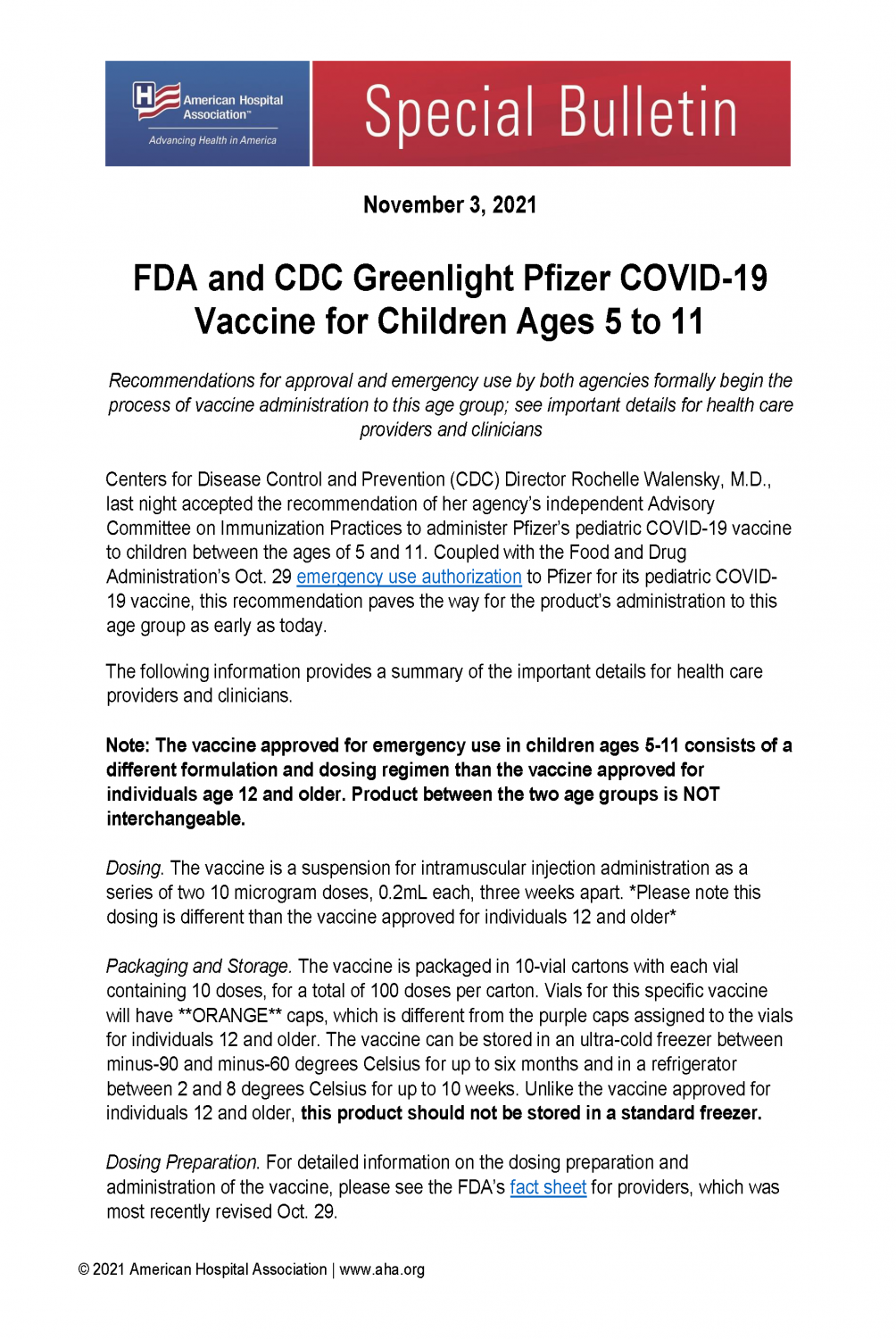

FDA and CDC Greenlight Pfizer COVID-19 Vaccine for Children Ages 5 to 11
Special Bulletin
November 3, 2021
Recommendations for approval and emergency use by both agencies formally begin the process of vaccine administration to this age group; see important details for health care providers and clinicians
Centers for Disease Control and Prevention (CDC) Director Rochelle Walensky, M.D., last night accepted the recommendation of her agency’s independent Advisory Committee on Immunization Practices to administer Pfizer’s pediatric COVID-19 vaccine to children between the ages of 5 and 11. Coupled with the Food and Drug Administration’s Oct. 29 emergency use authorization to Pfizer for its pediatric COVID-19 vaccine, this recommendation paves the way for the product’s administration to this age group as early as today.
The following information provides a summary of the important details for health care providers and clinicians.
Note: The vaccine approved for emergency use in children ages 5-11 consists of a different formulation and dosing regimen than the vaccine approved for individuals age 12 and older. Product between the two age groups is NOT interchangeable.
- Dosing. The vaccine is a suspension for intramuscular injection administration as a series of two 10 microgram doses, 0.2mL each, three weeks apart. *Please note this dosing is different than the vaccine approved for individuals 12 and older.*
- Packaging and Storage. The vaccine is packaged in 10-vial cartons with each vial containing 10 doses, for a total of 100 doses per carton. Vials for this specific vaccine will have **ORANGE** caps, which is different from the purple caps assigned to the vials for individuals 12 and older. The vaccine can be stored in an ultra-cold freezer between minus-90 and minus-60 degrees Celsius for up to six months and in a refrigerator between 2 and 8 degrees Celsius for up to 10 weeks. Unlike the vaccine approved for individuals 12 and older, this product should not be stored in a standard freezer.
- Dosing Preparation. For detailed information on the dosing preparation and administration of the vaccine, please see the FDA’s fact sheet for providers, which was most recently revised Oct. 29.
- Contraindications and Adverse Reactions. The most common side effects associated with the vaccine in children ages 5-11 are injection site pain, redness and swelling, fatigue, headache, muscle and/or joint pain, chills, fever, swollen lymph nodes, nausea and decreased appetite. According to data available, the likelihood and severity of these side effects has shown to be lower than in individuals 12 years and older. Providers should be aware of the potential for instances of myocarditis, though it is extremely rare and was not revealed in the clinical trial for children ages 5-11.
Next Steps
CDC will hold a COVID-19 Vaccine Partner Update call today at 12 p.m. ET. This meeting will include time for Q&A. Join the CDC call here.
On Monday, Nov. 8, the AHA will co-host a webinar with the American Academy of Pediatrics and the Children’s Hospital Association to discuss how physicians can work with parents to build trust in the safety and efficacy of the COVID-19 vaccine for children.
Visit AHA’s website to review a host of resources on COVID-19 vaccines and therapeutics, including materials on distribution and workforce issues.
Further Questions
If you have questions, please contact AHA at 800-424-4301.


